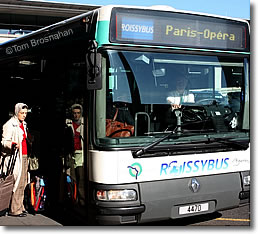The Bus Driver: Hedi Kaddour
What has gotten into the bus driverWho has left his bus, who has sat down
On a curb on the Place de l'Opera
Where he slips into the ease of being
Nothing more than his own tears? The passersby
Who bend over such a shared and
Presentable sorrow would like him
To tell them that the wind used to know
How to come out of the woods toward a woman's dress,
Or that one day his brother said to him,
Even your shadow wants nothing to do with you.
His feet in a puddle, the bus driver
Can only repeat, This work is hard
And people aren't kind.
-- from A Walk in the City, Treason (YUP 2010), translated by Marilyn Hacker
Like 35 Shots, Hedi Kaddour's amazing collection Treason explores the lives of characters confronting breakdowns in the flows and rhythms of their routines. I don't want to sound like a broken record citing recent French art for doing this kind of thing so well, but I thought this poem could be fun to think of next to Denis's film , especially because Lionel drives trains and the bus driver in Kaddour's poem...well....you get it (apparently there's just something super ordinary about working in public transportation in Paris).Anyway...
In Kaddour's poem, we see a man broken down, not by any specific event, but by what seems to be an accumulation of the daily grind. A crowd encircles him and observes him on the ground. "Merde, what a drag" they seem to be saying. "Who wants to see this normally friendly, affable bus driver so f*cking bummed? What a terrible reminder of how terrible his life must be as a bus driver."And so they try to coax him back to his friendly, joking ways. "Tell us that story about that chick with the wind and the dress," they want to say. They feel like asking, "Come on, tell remind us of that terrible thing your brother used to kid you about." But the bus driver can only sit in the "ease of being / Nothing more than his own tears." The work is hard--and sometimes it's just easier to have a good cry.
But....what's the work? It seems easy to say that the poem isn't about bus driving. I think it is--and it's important that it's not train driving, or plumbering, or widget making--because bus driving fits into a larger category of work that we don't generally think of as laden with affect. A bus driver deals in small moments of emotional intensities that we've all seen: road rage, passengers coming up short on fare, fighting in the back, strapping in wheelchairs, and often navigating the dodgier spaces of the city at night. Here, the accumulated "sorrow" is too "presentable" and the reaction is both disappointment and strange curiosity.
But it is also about how work more broadly demands constant emotional energies to manage what I think are often called "light-touch" encounters with anonymous strangers in the urban environment. Unlike 35 Shots, which conceives of the continuity of life as interrupted by concrete events, here we see the breakdown of routine in a moment of internal reflection. It is important that there is nothing in particular that causes this breakage and that everyone seems to wonder "What has gotten into the bus driver?" What's gotten into him is the simple realization that it takes a lot to muster the emotional resources to constantly rededicate ourselves to engagement in the world and to each other.
Or, more saccharinely, we're all the bus driver and the world keeps asking us to do emotional work for it. That work doesn't get any easier. We are expected to be happy workers, at the same time as we are supposed to be good husbands, wives, sons, daughters, students, and even good strangers. In this poem, Kaddour makes helpfully abstract what 35 Shots does in concrete terms. He asks us to pause and consider how anonymity and blank pleasantries and glimpses of anger add up. People are unkind when they refuse to acknowledge the draining quality of the ordinary--how the processes of maintaining our world for ourselves and for each other can overwhelm. Kindness might, in Kaddour's world, might mean openness and constant awareness to this exhaustion--and a willingness to be with and provide for (rather than constantly demanding from) one another.

No comments:
Post a Comment